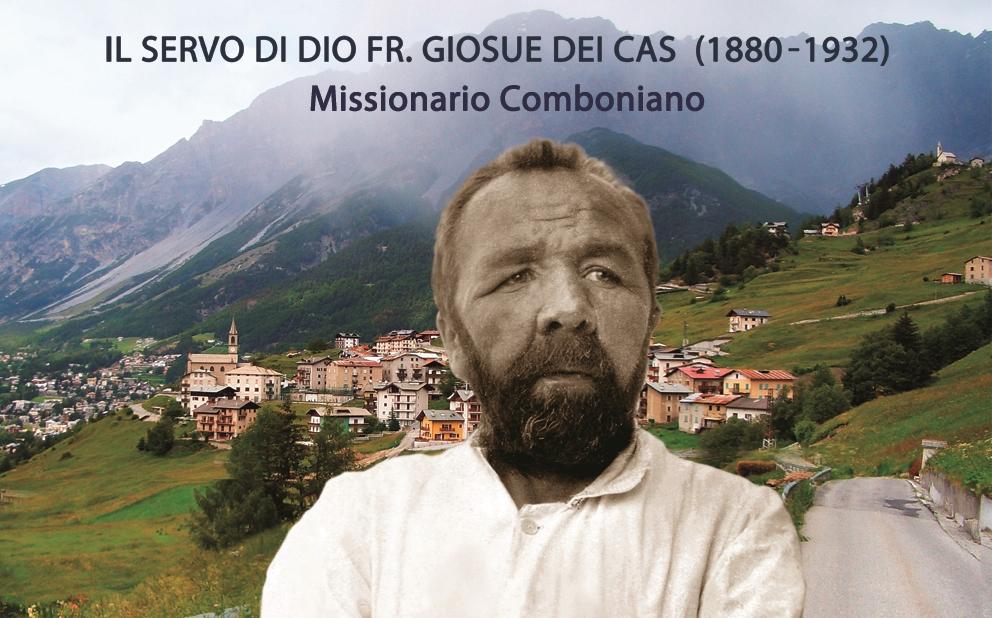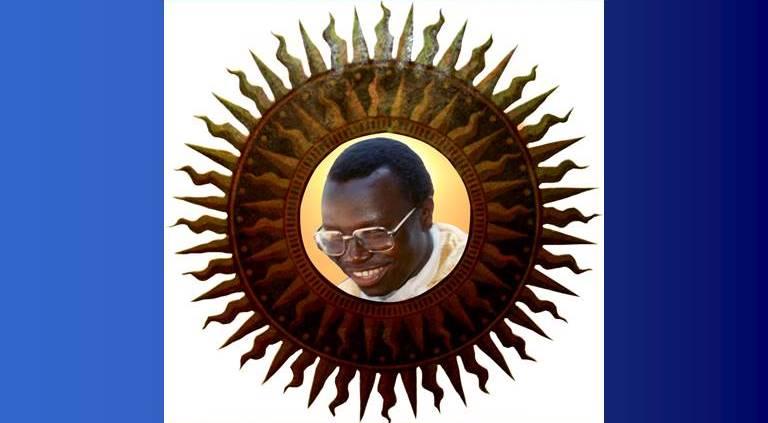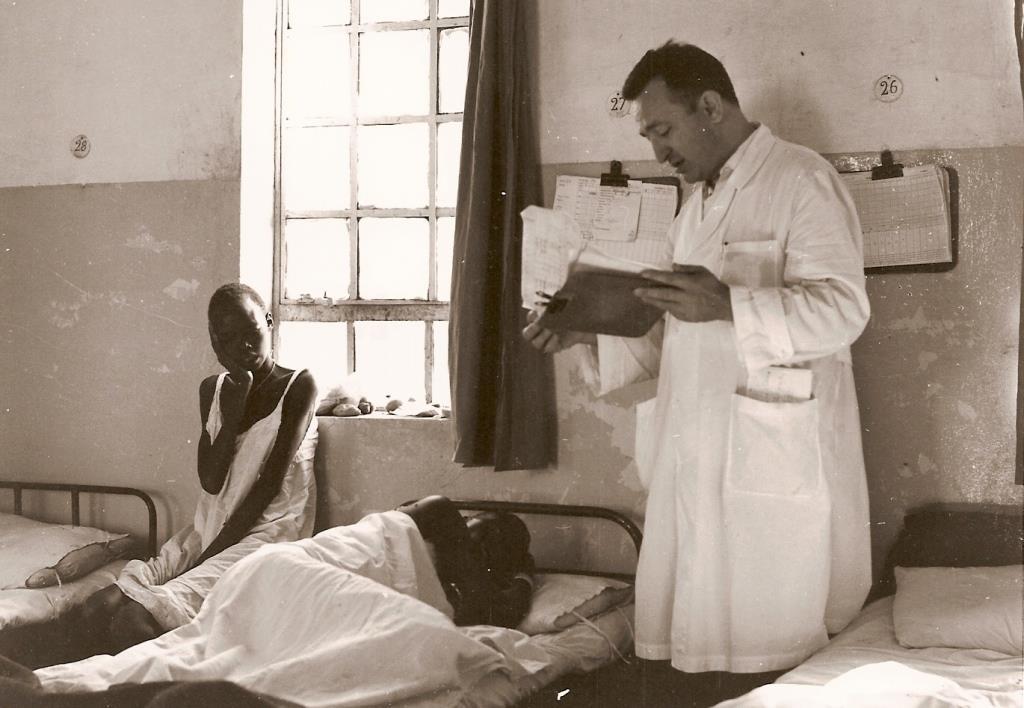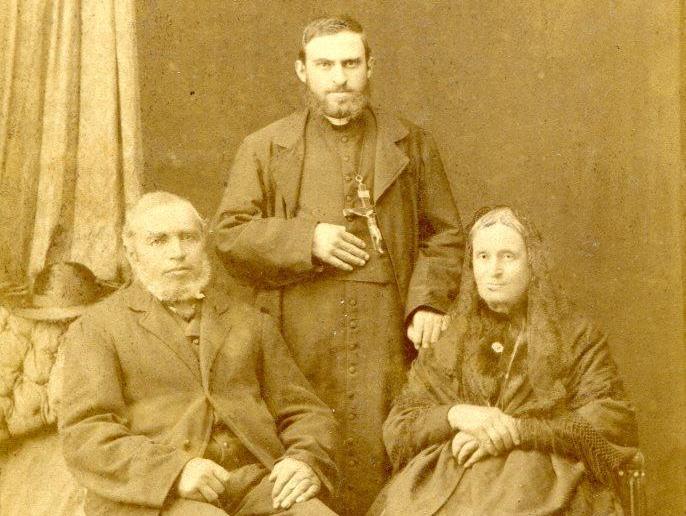Daniel Comboni
Comboni Missionaries
Institutional area
Other links
Newsletter
Tuesday, March 10, 2015
It seems opportune to us to inform the confreres about some work of the Postulation regarding the insertion of the memorial of St. Daniel Comboni in the General Roman Calendar, the opening of the Process of Canonisation of Bro. Giosuè Dei Cas (in the picture) and the actual state of the Causes of Fr. Giuseppe Ambrosoli and Fr. Bernardo Sartori. [Fr. Arnaldo Baritussio, mccj - Postulator].
The opening
of the Cause of the Canonisation
of Bro. Giosuè Dei Cas.
The Memoria of Comboni
Already in 2004, the Comboni bishops sent a formal request for the insertion of the memoria of St. Daniel Comboni in the General Roman Calendar; however, to the Vatican Congregation for Divine Worship and the Discipline of the Sacraments it seemed to be a request confined to the Comboni ambit and therefore of only relative ecclesial significance. Now, however, at the request of the Archdiocese of Milan and the good offices of our confreres Fr. Maurizio Balducci and Fr. Livio Tagliaferri, who provided the liturgical texts edited by us, Cardinal Scola officially asked the Vatican Congregation for the Liturgy that the name of Comboni be inserted with full right in the Ambrosian Calendar of the Archdiocese of Milan. The Congregation greatly valued the initiative and gave it to be understood that this is the way to obtain that which, for some time, we had sought, namely the insertion of Comboni in the General Roman Calendar. This, then, is a sign that the memoria of Comboni is not just something within the Institute but also a meaningful reality for the Church where Comboni Missionaries work. It is, therefore, to be hoped that, in the dioceses where we work, the superiors of the houses, with the support of the Provincial, should ask the bishop himself to forward to the Vatican Department the request for the insertion of the memoria of Comboni in the Proper Calendar and then in the General Roman Calendar. The bishop should send the request to: H E. Card. Robert Sarah, Prefect of the Congregation for Divine Worship and the Discipline of the Sacraments - 00120 Vatican City. If we think of all the dioceses where we are present, such an initiative would not be insignificant. The Postulation would appreciate being kept informed about this matter.
The opening of the Cause of the Canonisation of Bro. Giosuè Dei Cas
We can, at last, announce that the opening of the Process of Bro. Giosuè is very close. On 7 May, 2014, with a letter addressed to Mons. Rudolf Majak Deng, Bishop of Wau, the Postulation requested the move to the opening of the Cause of Giosuè. On 10 July, 2014, Mons. Rudolf replied expressing approval. Two months later, on 25 September, 2014, for reasons of lack of opportunity and objective difficulties due to the widespread situation of violence in the region and the impossibility of finding theological Censors and to set up a Historical Commission, he expressed his willingness to cede responsibility for the forum to the Bishop of Como, Mons. Diego Coletti. At the same time he asked to be authorised to conduct a Rogatorial at Wau to examine whatever witnesses there are in that place. The Bishop of Como, in November 2014, forwarded the request to the Congregation for the Causes of the Saints which, on 5 December, 2014, granted him responsibility for the forum. The main Process may now be conducted in Como and the Rogatorial at Wau, on a date yet to be specified. I may add that, in the Diocese of Como, I found a favourable atmosphere and generous availability on the part of the priests and laity who will intervene in the different sectors. And so the commencement has been set for 20 March, at 16.00, at the Archpriest’s house in Sondrio.
In the meantime, on 17 February, the bishop had made the following appointments:
DESIGNATED OFFICIALS OF THE PROCESS: MAZZOLA Rev. Attilio (Guanellian – Episcopal Delegate); NOGARA Rev. Marco (Promoter Of Justice); TAGLIAFERRI Fr. Livio (Combonian – Notary actuary); BRACELLI Fr. Pietro (Combonian – Additional Notary); MAZZA Fr. Piercarlo (Combonian - Cursor); GENEROSO Fr. Luigi Stefano (Combonian - Copyist);: SANGIANI Rev. Fausto (Chancellor Notary “ad casum”).
TECHNICAL-THEOLOGIAN CENSOR MEMBERS: BRACCHI Fr. Remo (Salesian); DOMINGUES Fr. Fernando (Combonian).
HISTORICAL COMMISSION: Xeres Mons. Saverio (President) and MASA Dr. Saveria.
A total of 43 witnesses, of whom 18 are local from the Valtellina and 26 are Combonians, are expected at the Como Process. The Process must tackle two crucial questions: the refusal to proceed, expressed in his time, by one Fr. General and the previous Postulation. Furthermore, it must be shown that the reputation for sanctity of Giosuè never waned away in the Institute. For this reason, the historical research has particular importance in contextualising the figure and the works of Giosuè, especially on the mission field.
Nevertheless, the Postulation believes that, with documents in hand and by means of testimonial proofs, it is possible to show that Bro. Giosuè was a Comboni Missionary among those most faithful to Christ, to the spirit of Comboni and that he was marked by an incredible love for the Africans. Furthermore, he has something to say to the Church of today that wants to be totally missionary and in a permanent state of going out towards the most extreme human situations.
Before all else, Giosuè invites us to be able to change, facing up with courage to the situations that evolve (My mission, as Monsignor understood it, is finished, finished. – writes Giosuè – God has so disposed, and, believe me, Father Bertenghi, I am happy, very happy). He is also a reminder that cultural differences must be overcome, not simply by cognitive interest but by daring to come close, in friendship and solidarity (If I were still today with my Parish priest and he objected: you should know that, in twenty year’s time you will be a leper; if you stay here that will not happen to you. Today, it seems to me that I ought to answer: even if after ten years, or even after just one year, I will go just the same). He also reminds us that the credibility of a missionary Church is measured by its ability to serve (Even if I did nothing else – he writes – but provide some vegetables or a duckling for someone teaching catechism or school lessons, I would say today: I will go to Africa.). Finally, for him the highest value is Jesus Christ, loved, preached and communicated through the sacraments (For example, a year ago, there was a young many dying in Tonga, without being baptised, a lad who for some years had been helping me in the kitchen and was fond of me. If I, whom he called his friend, had been present and said to him: “Hey, you mustn’t die like that! he would certainly have received the water of God. These are memories of the mission...). Indeed! Even today, it is experience that counts.
The Cause of Fr. Giuseppe Ambrosoli
We must point out the favourable vote of the theologians on the Positio deposited with the Congregation for the Causes of the Saints on 18 May, 2009. As the document states: on 4 December, 2014, at 17.00, the Special Congress of the Causes of the Saints met, set up – according to the norms of the same Department – by the Most Rev. Mons. Carmelo Pellegrino, Promoter of the faith, as President, Dr. Annarita Ragni, who acts as Actuary, and by the available Consulter Theologians, to discuss the heroic nature of the virtues of the Servant of God, Giuseppe Ambrosoli, a professed priest of the Congregation of the Comboni Missionaries (1923-1987). In synthesis, the Congress stated: The Positio adequately provides probate material. The numerous eyewitnesses examined, both in Uganda and in Italy, among whom there were many lay people, bring out an interesting figure. The Consultors identified the uniqueness of the Servant of God in combining the priestly mission with the medical profession, something he realised in an exemplary life. He knew how to apply Christian values to the art of medicine, practising an extraordinary charitable activity, assisted by a high degree of professionalism.
The foundation of his life was a deep faith which animated his missionary activity with the intention of bringing Christ to others. Nourished also by the writings of Charles de Foucauld, he was convinced that a doctor is one who is called to work for the suffering Christ; he would repeat: “God is love and I am his servant for the people who suffer”. He poured out his love for the Eucharist on the sick whom he attended, with equal attention. When blood was needed for transfusions, he did not hesitate to provide his own. His intense hospital work did not distract him from constant prayer, in which he also involved others. He carried out this project of the “Gospel Incarnate” with great trust in Providence. He distinguished himself by charity in the front line, but in a hidden way and never for vainglory. Obedient and docile to the will of the superiors, he was grateful to them for allowing him to realise what he had desired. It was pointed out that a Sister, in her deposition, spoke of the “invasive personality” of Fr. Ambrosoli. It was an isolated view that the Consultors read in the light of the responsibilities the Servant of God assumed every day, both as a priest and a doctor. At the end of the debate, all the Consultor Theologians saw fit to vote totally in favour (9 votes out of 9). The Most Rev. Theologians of the Congress, as they concluded the meeting, expressed the hope that the servant of God, Giuseppe Ambrosoli, if it pleases the Holy Father, may soon be beatified (Vatican City, 4 December, 2014).
We have now only to await the view of the Bishops and Cardinals which will be followed by the decree of venerability. Only after that will the prodigious event that took place at the hospital of Matany (Karamoja) be evaluated. If approved, it should lead to the Beatification of Fr. Giuseppe.
The Cause of Fr. Bernardo Sartori
The Positio of the Servant of God, Fr. Bernardo Sartori, was handed in in June of last year, 2014. It is now waiting its turn to be subjected to the judgement of the Theologian Censors, which is the first step in the path towards venerability and beatification. The Positio is a work consisting of almost 900 pages, based upon the depositions of 129 witnesses, 24 copybooks of Spiritual Exercises varying in length from 12 to 36 pages, points for sermons filling 325 pages and 2,520 letters spread out over the long and amazing missionary life of Fr. Sartori. It is hoped that, while observing all due precautions, we can make available some of the material of our confidential files to our Postulancies, Novitiates and Scholasticates.
Perhaps we may find in them some elements that may help to grow in the sense of belonging to the Institute and, especially, to identify some attitudes of life and mission capable of generating a more efficacious evangelical witness and lead to greater personal and community consistency.
February 2015
Fr. Arnaldo Baritussio, mccj
Postulator







